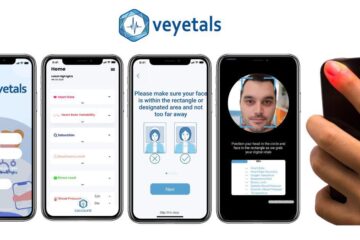
What Is Blood Pressure?
Blood pressure is the pressure of circulating blood in our bodies against the walls of our blood vessels. This pressure happens as our heart pumps blood through our circulatory system. When we measure blood pressure we’re usually shown two numbers, measured in millimeters of mercury (mm Hg). The top number (or first number) is systolic blood pressure, which is the pressure used when our heart beats. While diastolic blood pressure is the number on the bottom (or shown second), which is the pressure that already exists in our arteries between heartbeats. Measuring your blood pressure fairly regularly is something adults should be doing. Why?
1. Risk of High-Blood Pressure.
Hypertension, or high blood pressure occurs when the force of blood against your artery’s walls is too high, resulting in a higher blood pressure measurement. High blood pressure can cause damage to your blood vessels and create severe health problems if left unreated. Although anyone can develop hypertension, it is more common in adults.
According to the American Heart Association, over 85 million people in the United States alone have high blood pressure. It is slightly more prevalent in males, but women are more likely to develop hypertension after menopause. High blood pressure is often deemed a silent killer as it sometimes has no cause and many people don’t realize they have it. The only way to see if you have hypertension is to measure your blood pressure. Making regular blood pressure monitoring and tracking an important thing for all adults to do.
2. Spotting Trends.
Measuring and tracking your blood pressure regularly will help you identify trends in your health and blood pressure. Things like stress and anxiety have a significant impact on blood pressure, and noting the times your blood pressure is high, low, and normal can help you identify the triggers for them. And help manage not only your physical heart health better, but also your mental health as well. Things as simple as caffeine intake, waking up feeling irritable, and your reaction to relationships/events in the workplace and at home, can be positively impacted by managing your blood pressure.
3. Blood Pressure is an important indicator of overall health.
Blood pressure is a major vital sign, or an important indicator of overall health. Understanding how it impacts your body, noting what is normal for you and what is not, and tracking these numbers is a good practice to implement. As it will help identify what negatively and positively impacts your heart health and be more in tune with your body. Our blood pressure at the doctor’s office can sometimes be higher than normal due to many external reasons that we don’t consider. For that tracking blood pressure at home as well is important.
How to Track Blood Pressure?
There are many medical devices you can buy that measure blood pressure, and you should keep track of your readings somewhere like a notebook. You can also get it measured at most pharmacies as well as doctors offices and hospitals. However, These devices can be bulky, costly, and confusing to use. veyetals, a wellness app developed by MarkiTech (Markitech.AI ™), in collaboration with Queen’s University Computer, Vision and AI Lab, uses a real-time health monitoring system to measure these biomarkers and more. Within 90-95% accuracy levels using your smartphone’s camera. veyetals is easy to access, use, and track information on, making healthcare more accessible to at-risk populations without the need for costly medical devices.
About Us
Our cloud based, lightweight API allows veyetals to be integrated with the healthcare apps and platforms that matter to you most. The app is interoperable with other healthcare management systems including, but not limited to, SenSights.AI. veyetals drives information sharing with other health management solutions and further enhances the continuum of patient care.
Download our FREE app here
Follow us on LinkedIn at veyetals.com for more updates.
Credits: CDC, Hypertension Canada
#Manage-Blood-Pressure



